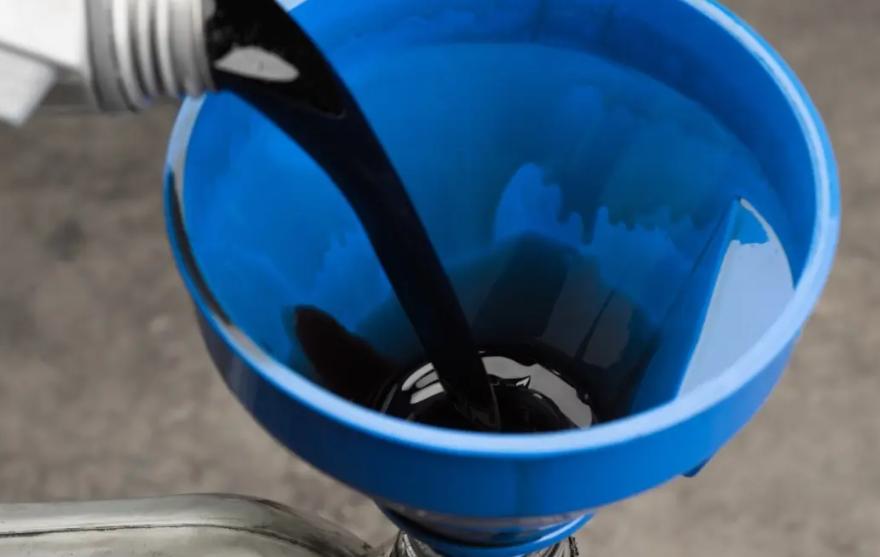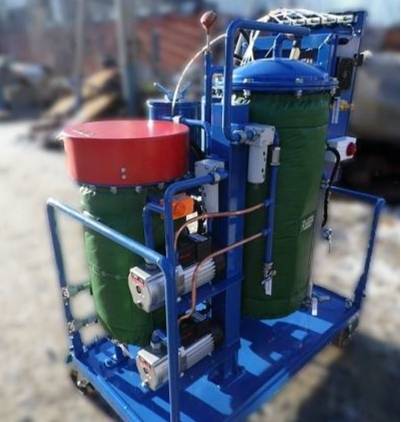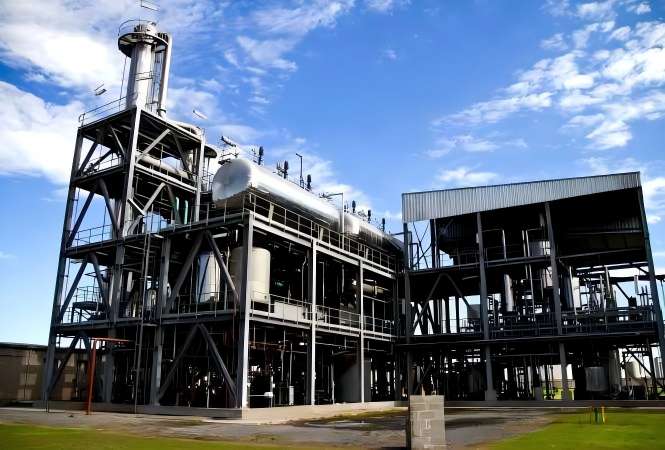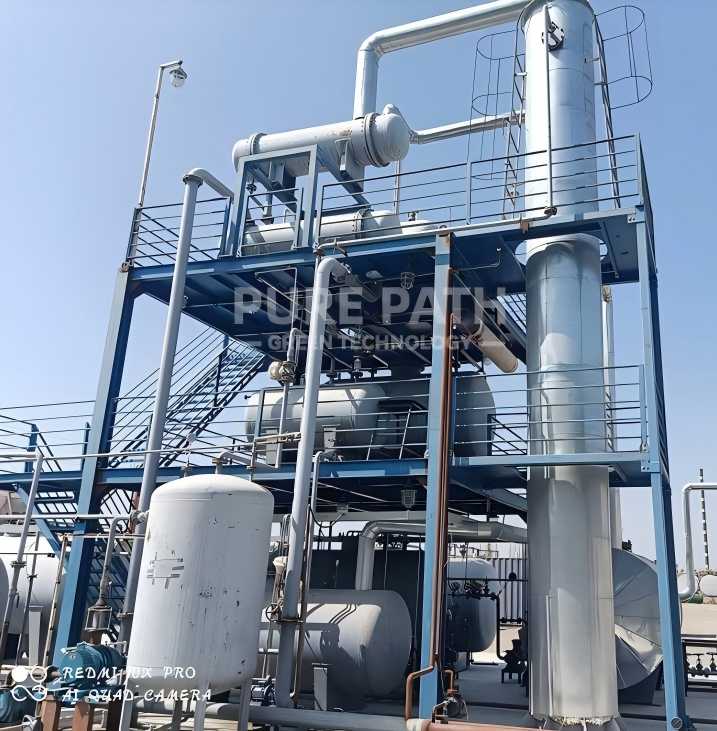DIY vs. Industrial: Which Motor Oil Recycling Machine is Suitable for You?
Motor oil is essential to keeping engines running smoothly, yet used motor oil poses a serious environmental threat if improperly discarded. Recycling used motor oil reduces pollution, conserves resources, and can even be profitable; choosing the appropriate recycling method depends on your individual or corporate needs.
In this blog post, we’ll compare DIY motor oil recycling machines with industrial-grade systems so that you can decide which solution best meets your needs.
Is Used Motor Oil Recycling Necessary?

Absolutely! Used motor oil is one of the most hazardous yet recyclable waste products available to us today, contaminating 1 million gallons of water supply each year, enough for 50 people. Recycling used oil offers significant environmental and financial benefits: it saves the earth while simultaneously offering significant savings to local economies.
- Resource Conservation: Refining used oil uses 90% less energy than manufacturing virgin oil from crude.
- Economic Value: Recycled oil may be reused as lubricant, processed into fuel, or repurposed for industrial heating applications.
- Regulation Compliance: Many regions penalize illegal dumping of used oil, making recycling an ethical and legal necessity. Pollution Prevention: Used oil contains heavy metals and toxins, which could pollute ecosystems if left in landfills; recycling keeps these harmful elements from harming ecosystems.
Since over 1.3 billion gallons of used motor oil are generated annually in the U.S. alone, recycling should not only be considered intelligent but essential to creating a more sustainable future. From DIYers to large businesses alike, recycling helps ensure oil stays within our economy rather than polluting the planet.
What is a DIY Motor Oil Recycling Machine?

DIY oil recycling machines are compact, user-friendly systems designed for small-scale oil recycling. Unlike industrial setups, these DIY systems are more affordable, user-friendly, and ideal for individuals, hobbyists or small auto shops producing limited amounts of used oil. Most DIY systems utilize basic filtration, centrifugal separation or distillation to remove contaminants so the recycled oil can be reused in engines, machinery or as fuel source.
Applications of DIY Motor Oil Recycling Machines
- Home Mechanics & Car Enthusiasts – Reuse old motor oil to clean personal vehicles, motorcycles or lawn equipment.
- Small Auto Repair Shops – Cut waste disposal costs by recycling oil in-house instead of paying for hazardous waste removal services.
- Farmers & Equipment Owners – Filter and reuse oil in tractors, generators, or any other heavy machinery for maximum performance.
- Off-Grid & Sustainable Living – Turn waste oil into usable fuel for heating or backup power needs.
- Educational & DIY Projects – Engage students in recycling principles while exploring small-scale oil purification techniques.
These machines are cost-effective (ranging from $500 to $5,000) and require minimal maintenance, making them an attractive option for individuals without industrial-scale processing needs. Unfortunately, their purification efficiency falls short compared to commercial systems, meaning recycled oil may not meet high performance standards for modern engines.
For larger operations, an industrial motor oil recycling machine is necessary; read on to discover all your options!
What is an Industrial Motor Oil Recycling Machine?

An industrial motor oil recycling machine is a high-performance system designed for processing used lubricants on an industrial scale and turning waste oil into usable base oil or fuel. Unlike small DIY setups, these advanced machines utilize advanced technologies like vacuum distillation, hydrotreating, clay filtration, and catalytic purification in order to effectively eliminate contaminants, metals, additives, and purify the oil produced – producing oil which meets or surpasses industry standards.
These heavy-duty systems are constructed for heavy-duty operations, capable of processing hundreds to thousands of gallons a day – ideal for businesses that generate or handle high volumes of used oil. Many industrial recyclers also recover byproducts like asphalt additives or fuels for maximum resource efficiency.
Applications of Industrial Motor Oil Recycling Machines
- Oil Re-Refineries – Convert bulk used oil into high-quality base oils suitable for lubricant manufacturers.
- Large Auto Fleet Operators – Trucking companies, bus depots, and logistics hubs all recycle oil on-site for on-site use.
- Industrial Plants – Factories often recycle hydraulic fluids, gear oils, and machining lubricants into usable forms for reuse or energy recovery.
- Waste Management Companies – Collect used oil from consumers for reuse or energy recovery purposes.
- Power Generation – Additionally, some facilities recycle used oil into fuel for industrial burners or boilers.
With increasingly stringent environmental regulations and rising demands for sustainable lubricants, industrial recycling machines offer profitable compliance and reduced carbon emissions–making them integral components for large-scale oil waste management.
DIY vs. Industrial Motor Oil Recycling Machine: Key Differences

Here is a summarized version about the key differences about DIY and Industrial Motor Oil Recycling Machine.
| Feature | DIY Recycling Machine | Industrial Recycling Machine |
| Cost | 500–5,000 | 50,000–500,000+ |
| Capacity | 1–10 gallons per batch | 100+ gallons per hour |
| Oil Output Quality | Basic filtration (usable for non-critical applications) | Near-virgin quality (suitable for reuse as lubricant) |
| Space Required | Small (fits in a garage or workshop) | Large (requires dedicated facility) |
| Energy Consumption | Low (manual/semi-automated) | High (industrial power supply needed) |
| Maintenance | Simple (user-friendly cleaning) | Complex (requires trained technicians) |
| Best For | • Home mechanics | • Oil recycling plants |
| • Small garages | • Large auto workshops | |
| • Farmers | • Industrial facilities | |
| • DIY enthusiasts | • Waste management companies | |
| Portability | Yes (lightweight and movable) | No (permanent installation) |
| Regulatory Compliance | May not meet commercial standards | Certified for large-scale disposal/re-refining |
In a word, DIY machines are ideal for small-scale, cost-effective recycling but lack the efficiency and purity of industrial systems. Industrial machines deliver high-volume, high-quality output but require major investment and infrastructure.
Selection Tips
Selecting an effective motor oil recycling machine depends on your unique needs, budget, and operational scale. Here is a handy guide that should help make this decision simpler:
- Volume of Oil Waste – DIY machines are an ideal choice for small garages or individuals wishing to process several gallons per month; industrial systems handle larger-scale operations with the capacity of recycling hundreds of gallons every day.
- Space & Installation – DIY units are often compact and portable, while industrial machines may need dedicated space and a professional setup.
- Oil Quality Needs – To produce high-purity re-refined oil at scale, industrial-grade systems with advanced filtration are necessary.
- Compliance & Certifications – Businesses should make sure their recycling process complies with environmental regulations, which industrial machines typically facilitate.
For businesses seeking a high-efficiency, reliable industrial solution, PurePath is a trusted manufacturer of advanced motor oil recycling plants. Our systems feature automated refining, high recovery rates, and compliance with global environmental standards, making them a top choice for large-scale oil recyclers.
If you are in need, please feel free to contact us!







